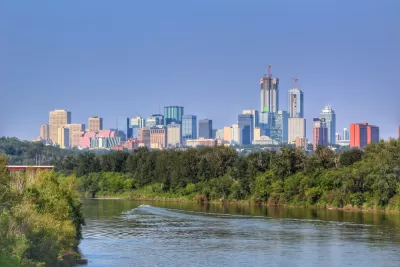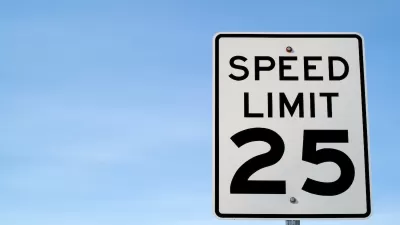Some Edmonton streets will see a drop in speed limit by 10 km/h. Some Edmontonians would like to see the limit further reduced, while others think the reduction is a case of misguided priorities.

In a 9-3 vote count, Edmonton City Council decided to reduce the speed limit in residential neighborhoods and busy pedestrian areas in the city from 50 km/h to 40 km/h.
"Council initially approved lowering the limit at a public hearing in March and directed administration to draft the necessary bylaws. Wednesday's statutory public hearing was a legal requirement before the city could make the change," reports Natasha Riebe.
The change comes in the face of widespread disagreement in the public. According to Riebe, city council meetings have been a hotbed of debate about the potential benefits of lowering the speed limit in Edmonton. Several city counselors have avidly canvassed for the speed limit reduction in recent years.
Still, others see the lowered speed limits as a step in the wrong direction.
"Dziadyk said council should have deferred the decision during the COVID-19 pandemic," Riebe writes, noting the opinion that the city council should have been focusing on more important issues during the pandemic.
Other opponents cite decreased productivity for delivery services and stunted advancement in technologies related to vehicle safety.
Nonetheless, Biebe says that by next summer, "the city will swap out 1,500 signs at a cost of $1.1 million, funded by the traffic safety automated enforcement reserve."
FULL STORY: Edmonton council approves 40 km/h residential speed limit

Alabama: Trump Terminates Settlements for Black Communities Harmed By Raw Sewage
Trump deemed the landmark civil rights agreement “illegal DEI and environmental justice policy.”

Study: Maui’s Plan to Convert Vacation Rentals to Long-Term Housing Could Cause Nearly $1 Billion Economic Loss
The plan would reduce visitor accommodation by 25% resulting in 1,900 jobs lost.

Planetizen Federal Action Tracker
A weekly monitor of how Trump’s orders and actions are impacting planners and planning in America.

Wind Energy on the Rise Despite Federal Policy Reversal
The Trump administration is revoking federal support for renewable energy, but demand for new projects continues unabated.

Passengers Flock to Caltrain After Electrification
The new electric trains are running faster and more reliably, leading to strong ridership growth on the Bay Area rail system.

Texas Churches Rally Behind ‘Yes in God’s Back Yard’ Legislation
Religious leaders want the state to reduce zoning regulations to streamline leasing church-owned land to housing developers.
Urban Design for Planners 1: Software Tools
This six-course series explores essential urban design concepts using open source software and equips planners with the tools they need to participate fully in the urban design process.
Planning for Universal Design
Learn the tools for implementing Universal Design in planning regulations.
Caltrans
Smith Gee Studio
Institute for Housing and Urban Development Studies (IHS)
City of Grandview
Harvard GSD Executive Education
Toledo-Lucas County Plan Commissions
Salt Lake City
NYU Wagner Graduate School of Public Service




























